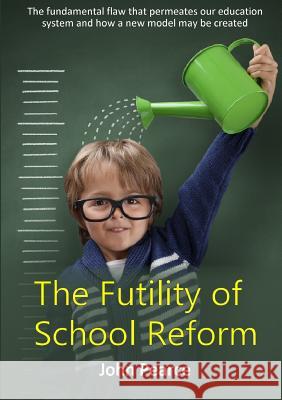The Futility of School Reform » książka
The Futility of School Reform
ISBN-13: 9781326531041 / Angielski / Miękka / 2016 / 252 str.
We have an education system, shaped over centuries, in which most children rarely fulfil their potential. Decades of governmental reforms; comparative studies; numerous inspectors' reports and a blame culture targeting teachers, certain categories of parents and their children have produced very little. Part One argues that the key reason for this incapability is the universally accepted concept of a 'curriculum' along with its correlating concepts of 'teaching' and 'organisation'. These form a powerful triad that is the foundation of a system which is structurally incapable of internal reform; unable to confront the complexities of modern life. Part Two describes and analyses a practical alternative. Rejecting the necessity for formal control, closeting in classes, and a painting by numbers curriculum, the concepts of 'curriculum' 'teaching' and 'organisation' are redefined, focusing upon how a powerful and liberating context in which educational activities may take place.
We have an education system, shaped over centuries, in which most children rarely fulfil their potential. Decades of governmental reforms; comparative studies; numerous inspectors reports and a blame culture targeting teachers, certain categories of parents and their children have produced very little. Part One argues that the key reason for this incapability is the universally accepted concept of a curriculum along with its correlating concepts of teaching and organisation. These form a powerful triad that is the foundation of a system which is structurally incapable of internal reform; unable to confront the complexities of modern life.Part Two describes and analyses a practical alternative. Rejecting the necessity for formal control, closeting in classes, and a painting by numbers curriculum, the concepts of curriculum teaching and organisation are redefined, focusing upon how a powerful and liberating context in which educational activities may take place.











